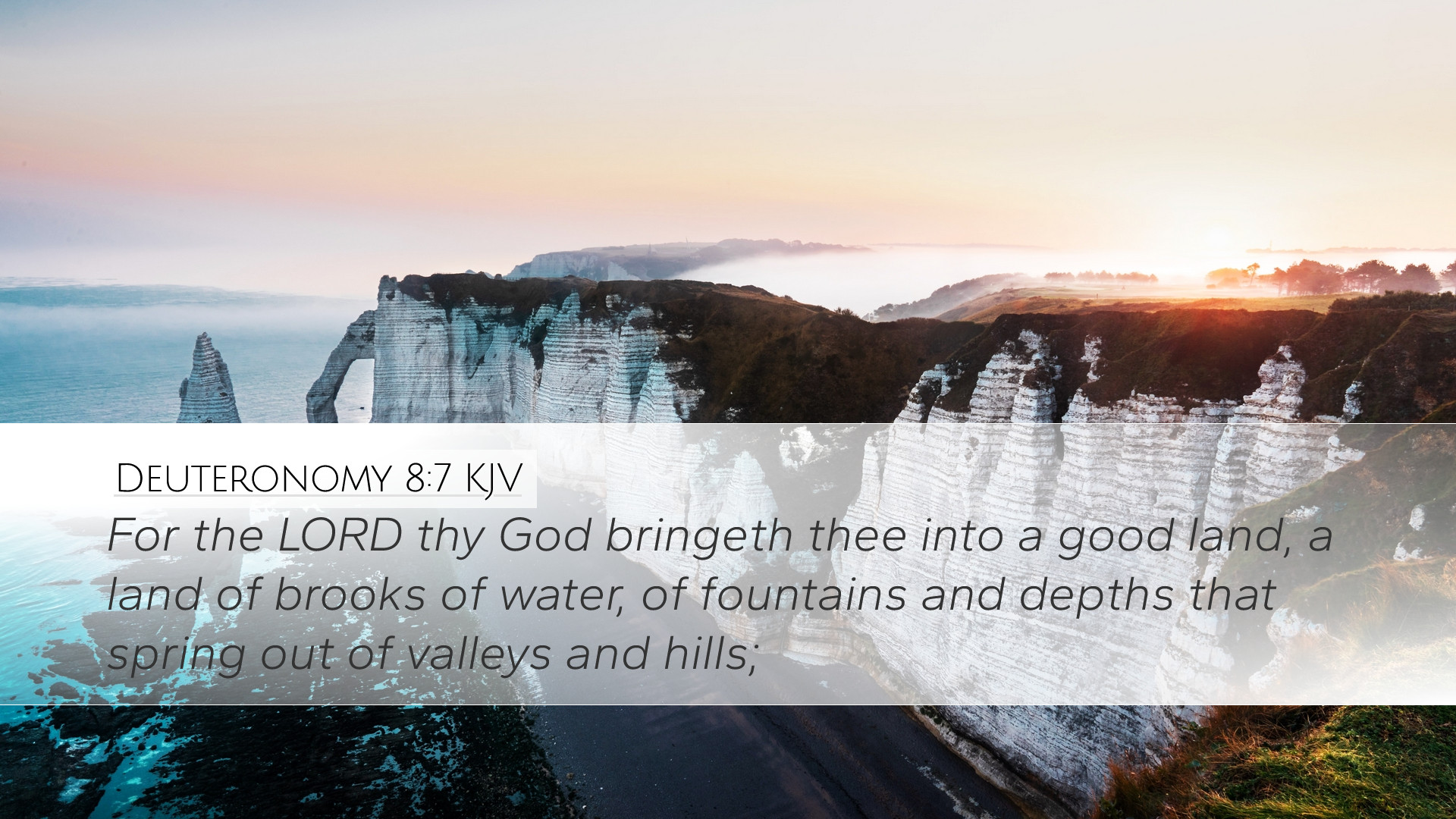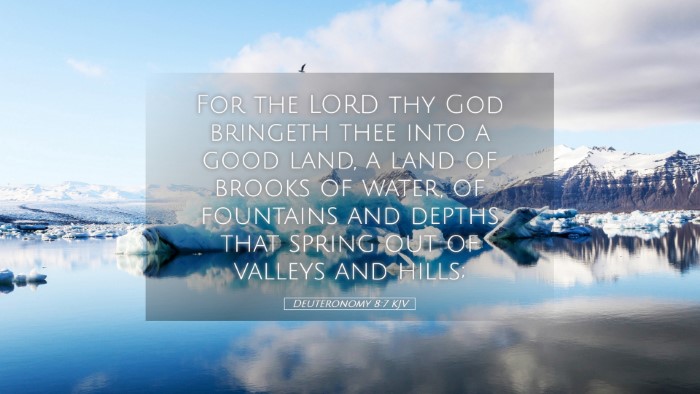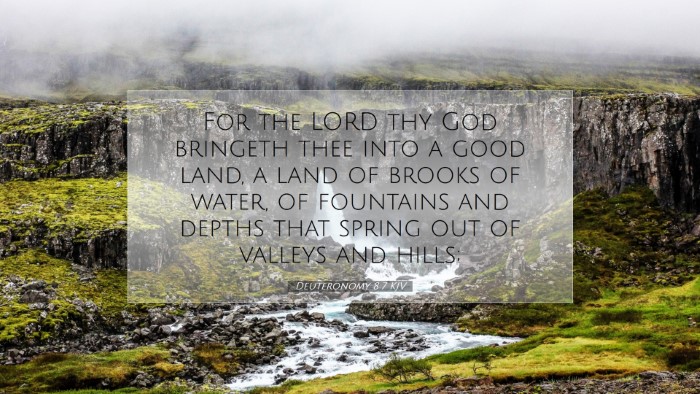Commentary on Deuteronomy 8:7
Verse: "For the Lord your God is bringing you into a good land, a land of brooks of water, of fountains and springs, that flow out of valleys and hills;" (Deuteronomy 8:7, NKJV)
Introduction
Deuteronomy 8:7 is a passage that encapsulates God's promise to His people as they prepare to enter the Promised Land. It speaks of the abundant blessings that await them, which includes not only physical prosperity but a deeper understanding of the character of God and His provision for His people.
Historical Context
Deuteronomy, the fifth book of the Pentateuch, is presented as a series of speeches by Moses to the Israelites before they enter Canaan. This book serves both as a covenant renewal and an exhortation to obedience, reflecting on the past and establishing the foundation for the future.
Thematic Overview
- Promise of Abundance: The mention of “good land” emphasizes God’s generosity and faithfulness.
- Physical vs. Spiritual Provision: While the land has physical characteristics (brooks, springs), this also signals spiritual sustenance.
- The Importance of Remembrance: This passage reminds the Israelites to remember God’s provision in their journey.
Commentary Insights
Matthew Henry: Henry emphasizes that the description of the land highlights God’s goodness in providing not just sustenance but a rich environment filled with resources. The “brooks of water” symbolize the refreshing presence of God that nourishes His people.
Albert Barnes: Barnes reflects on the historical significance of the Promised Land. He notes that it is often described as a land “flowing with milk and honey,” and here the reference to water sources indicates life and fertility. This underscores the faithful character of God in sustaining His people.
Adam Clarke: Clarke provides further insight into the geographical features mentioned. He explains that the springs and valleys indicate a land that is not only fruitful but strategic for settlement and agriculture. The mention of hills and valleys is also understood in the context of the communal and spiritual life of Israel.
Theological Reflection
- The Nature of God: This verse reveals God’s nature as a provider. He leads His people into abundance, reflecting His goodness and faithfulness.
- Human Response: The blessing of the land requires a response from the Israelites; they are called to faith and obedience, which are essential for enjoying the fullness of God’s promises.
- Symbolism of Water: Water often symbolizes life and spiritual refreshment in biblical literature, indicating that the land is not only physically sustaining but spiritually enriching.
Practical Application
For pastors and scholars, this passage invites reflection on the blessings of God in contemporary ministry. How does one lead a congregation to recognize and dwell in the “good land” that God has provided? It also raises questions about stewardship and gratitude, emphasizing the need for remembrance of God’s past provision as preparation for future challenges.
Furthermore, believers today can draw parallels between their spiritual journey and that of the Israelites, acknowledging God’s faithfulness and learning to rely on Him as they navigate the “land” He has brought them into—whether that be personal, communal, or vocational.
Conclusion
Deuteronomy 8:7 serves as a powerful reminder of God’s promises and provisions for His people. It encourages reflection on the lavish love of God, urging believers to anticipate His blessings while committing to a life of faith and obedience. As we delve into this text, may we be challenged to recount God's faithfulness and to live in a manner that honors His generous heart.


